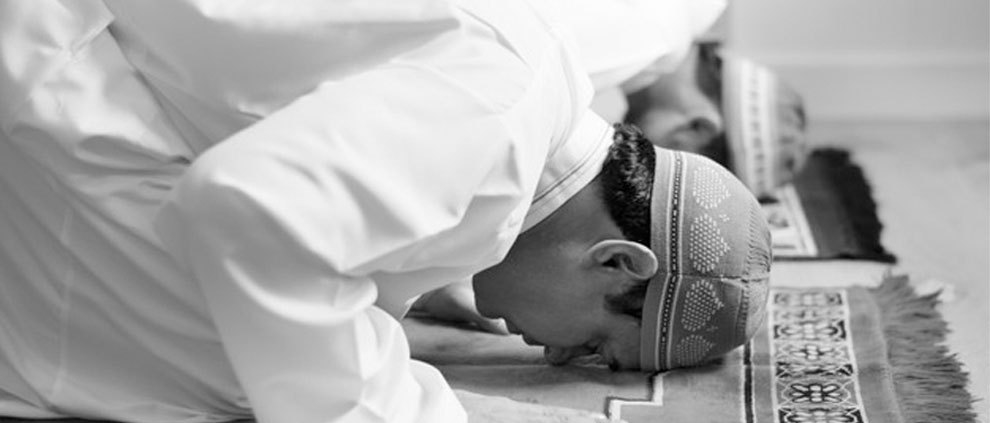How to Pray the Sunnas of Missed Prayers?
Hanafi Fiqh
Answered by Shaykh Yusuf Weltch
Question
I have started making up my missed salah over the years, alhamdulillah. I started praying regularly around the age of 17 or 18, but I’ve missed so much since I hit puberty (probably around 13). I have read on your website about making up missed salah, and this is part of what inspired me to do so, so thank you! I have a few questions:
I am doing a qadha salah after my fard salah (so I pray maghrib, then a qadha maghrib.). Should I pray my sunna and nawafil before or after the qadha, and does that matter? I assume sunnah mua’kada should be prayed immediately after the fard salah of the same day, and qadha should be last.
Since actions are judged by intention, as we learned from the Prophet (Allah bless him and give him peace), do I need to worry about not fulfilling all of them before death? What I mean is that I have begun this journey of making up missed salah and am doing it daily, but I am extremely prone to waswasa, and think that I should pray almost 24/7 to make these up before death. However, Allah Most High knows when my death will be, so should I not burden myself with that?
Regarding question two, I had the same thought when memorizing the Quran (which I recently began doing, alhamdulillah). I intend to become a hafidh, and I am doing little by little each day, but some days my teacher is unavailable, so I revise what we’ve learned. I’ve tried memorizing on my own, but I made many mistakes, and we had to correct them, so I assume it is better to remember instead of memorizing incorrectly than having to go back and fix it.
Answer
In the Name of Allah, the Most Merciful and Compassionate.
May Allah bless you for your intention to rectify past mistakes and strive toward new beginnings.
Making Up Prayers
There is no specific order between your make-up prayers and the Sunna of the current prayers.
Also, note that there is no making up of the Sunna prayers for the prayers one has missed. [Ibn ‘Abidin, Radd al-Muhtar]
The Nearness of Death and Missed Prayers
It is a good thing to understand and be conscious of the nearness of death. However, we must strive to use our time in the way that is practically most beneficial. This does not mean we should burden ourselves with more than we can handle to squeeze in more worship before death.
The Prophet (Allah bless him and give him peace) advised us to strive for consistency even if the deed is small.
He (Allah bless him and give him peace) was asked, “Which action is most beloved to Allah?” He replied, “That which is consistent though small. Take on of actions that which you can handle.” [Bukhari]
Actions are Based on Intentions
Have the sincere and determined resolve to make up all your missed prayers and do your best to fulfill that intention. Have a good opinion of Allah Most High that even if you don’t live long enough to finish them all, He will bestow His mercy and forgiveness on you for your intention.
The sign of a sincere intention is striving.
Memorizing the Quran
The above principles can be applied to memorize the Quran as well. It is more about quality and consistency than it is about quantity. You were right to wait for your teacher to continue your memorization. And it is good that you used your time to revise in his absence.
May Allah bless, reward, and increase you in all that is beloved to Him.
Hope this helps
Allah A’lam
[Shaykh] Yusuf Weltch
Checked and Approved by Shaykh Faraz Rabbani
Shaykh Yusuf Weltch is a teacher of Arabic, Islamic law, and spirituality. After accepting Islam in 2008, he then completed four years at the Darul Uloom seminary in New York where he studied Arabic and the traditional sciences. He then traveled to Tarim, Yemen, where he stayed for three years studying in Dar Al-Mustafa under some of the greatest scholars of our time, including Habib Umar Bin Hafiz, Habib Kadhim al-Saqqaf, and Shaykh Umar al-Khatib. In Tarim, Shaykh Yusuf completed the memorization of the Qur’an and studied beliefs, legal methodology, hadith methodology, Qur’anic exegesis, Islamic history, and a number of texts on spirituality. He joined the SeekersGuidance faculty in the summer of 2019.
